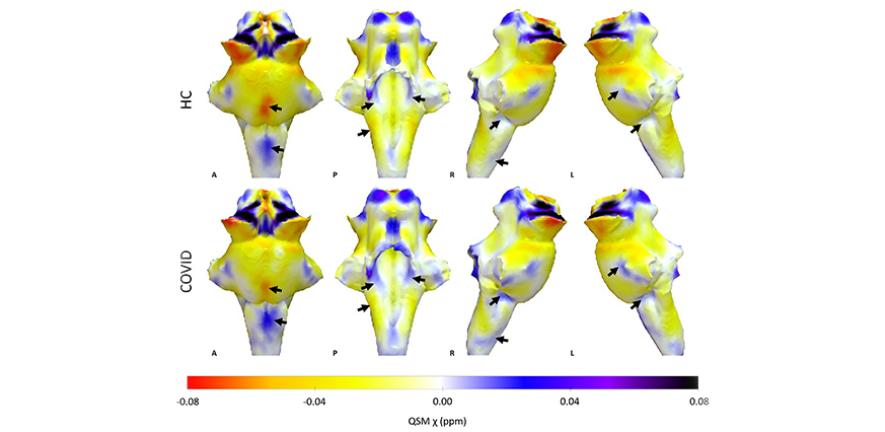Damage to the brainstem – the brain’s ‘control centre’ – is behind long-lasting physical and psychiatric effects of severe COVID-19 infection, a study has suggested.

Using ultra-high-resolution scanners that can see the living brain in fine detail, researchers from the Universities of Cambridge and Oxford were able to observe the damaging effects COVID-19 can have on the brain.
Using powerful MRI scanners, known as 7-Tesla or 7T scanners, the study team scanned the brains of 30 people who had been admitted to hospital with severe COVID-19 early in the pandemic, before vaccines were available. The researchers found that COVID -19 infection damages the region of the brainstem associated with breathlessness, fatigue and anxiety.
Although the study was started before the long-term effects of COVID were recognised, the results, published in the journal Brain, will help scientists and clinicians understand the long-term effects of COVID-19 on the brain and the rest of the body.
The brainstem, which connects the brain to the spinal cord, is the control centre for many basic life functions and reflexes. Clusters of nerve cells in the brainstem, known as nuclei, regulate and process essential bodily functions such as breathing, heart rate, pain and blood pressure.
In the early days of the pandemic, before effective vaccines were available, post-mortem studies of patients who had died from severe COVID-19 infections showed changes in their brainstems, including inflammation. Many of these changes were thought to result from a post-infection immune response, rather than direct virus invasion of the brain.
Measuring that immune response is difficult in living people, as normal hospital-type MRI scanners cannot see inside the brain with the kind of chemical and physical detail we need. But these details can now be measured with 7T scanners.
The researchers found that multiple regions of the brainstem – in particular the medulla oblongata, pons and midbrain – showed abnormalities consistent with a neuroinflammatory response.
The research was supported in part by the NIHR Oxford Biomedical Research Centre (BRC), the NIHR Cambridge BRC and the University of Oxford COVID Medical Sciences Division Rapid Response Fund.
Read more about this study on the University of Cambridge website.